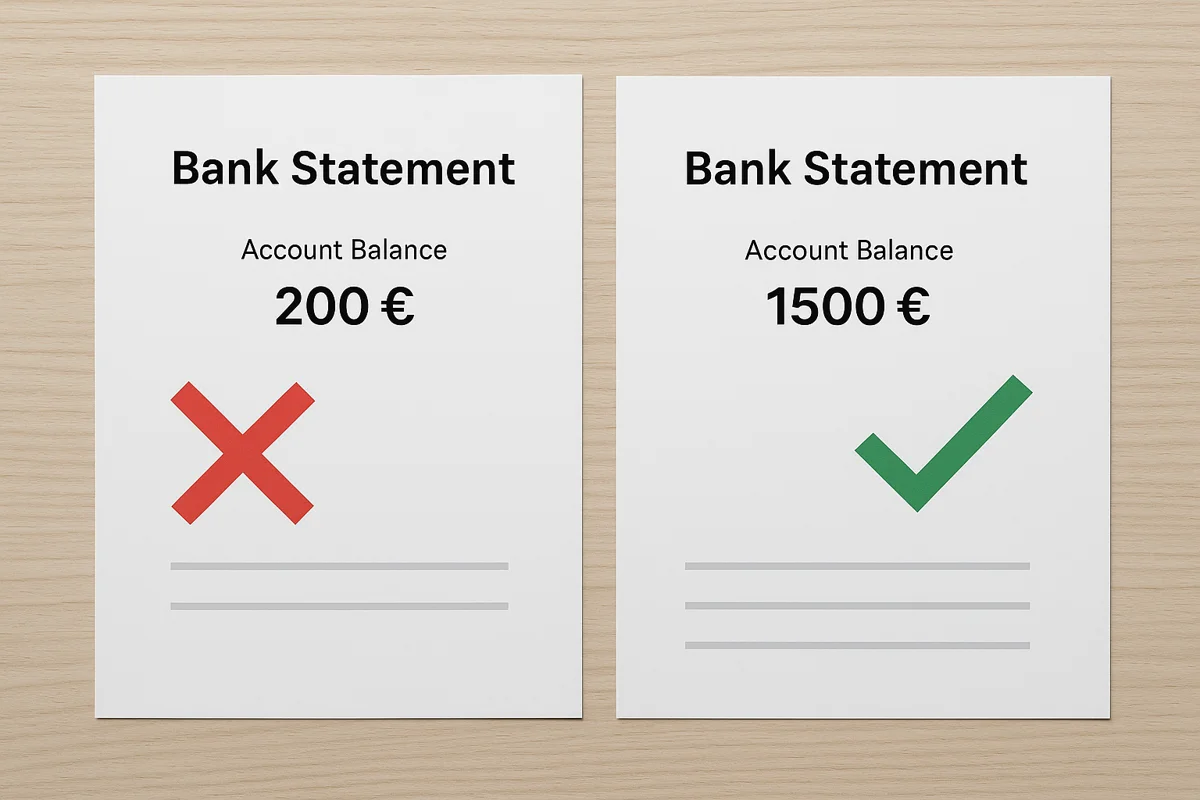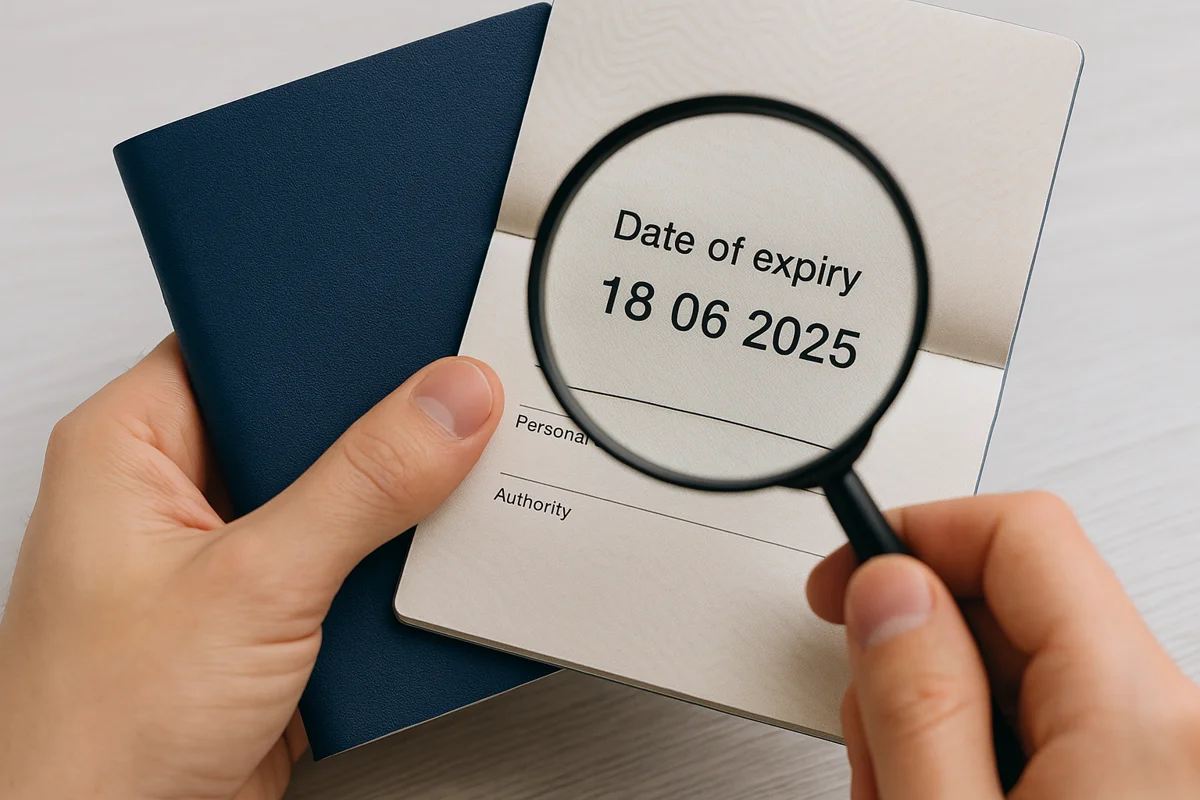21.10.2025
Top Five Common Mistakes When Applying for a Visa (and How to Avoid Them)

Planning to apply for a visa? Learn which mistakes even experienced travelers make—and how Terrana experts help you avoid a denial.
Getting a visa isn’t difficult if you understand how a consular officer thinks. Denials are often triggered not by serious violations but by small inconsistencies. Below are five mistakes even seasoned travelers make—and how to avoid them.
Why Applications Get Denied Even When Everything Seems in Order
Consulates assess applications based on a combination of indicators: a logical itinerary, sufficient finances, and reliable data. If any element raises doubts, the decision may be negative. It’s important to remember that each country has its own criteria. So, as you prepare to apply, don’t just assemble a standard checklist—make sure it matches your travel purpose and the requirements of the specific consulate you’ve chosen.
Mistake No. 1: Insufficient Financial Proof
One of the most common reasons for denial is an account balance that’s too low or an absence of recent transactions. A consular officer considers not only the closing balance but also the stability of your income.
How to Avoid It:
-
Calculate the total based on the length of the trip. A common approach is to take an average daily cost and multiply it by the number of days.
-
Factor in whether tickets and accommodation are prepaid. If not, add their cost.
-
It’s safer to show a bit more than the stated “minimum.”
-
Submit recent bank statements with transaction history (and, if available, a bank letter confirming your balance) — this shows the account is actively used.
For visa purposes, it’s not just the amount that matters but the credibility of the funds. A one‑day “snapshot” balance without transaction history can raise doubts.
Mistake No. 2: Mismatch between the stated purpose and your documents
The officer must understand why you’re traveling and whether your itinerary matches that purpose. If you say you’re visiting relatives but present a hotel booking in another city, that’s a contradiction. The same applies when someone claims “business travel” without an official invitation.
Check that all details are consistent:
-
Purpose, dates, tickets, and bookings must align.
-
For combined purposes (e.g., business trip + vacation), state this explicitly in the application.
-
Don’t reuse details from previous applications — your itinerary and circumstances must be up to date.
A purpose mismatch can signal undeclared intentions.

Mistake No. 3: Canceling bookings before you get the visa
Many travelers submit cancelable hotel bookings and then cancel them right after submission in order not to hold funds. That’s risky. Some consulates — for instance, Greece or Hungary — may verify bookings by contacting hotels. If the reservation is found canceled, your application can look suspicious. In some cases, a consulate may revoke an issued visa if it learns the applicant voided all bookings immediately after issuance.
Recommendation: keep your bookings active until you receive the visa. After issuance, you may adjust your itinerary — but avoid changes beforehand.
Mistake No. 4: Unreliable contact details
Another common mistake is listing a placeholder phone number or email address that no one monitors. A consular officer may call your employer to confirm details from your employment letter.
To avoid awkward situations:
-
Provide a direct line for your department or manager who knows about your application.
-
Double‑check email and phone numbers, especially if an agent prepared the paperwork.
-
Don’t list colleagues’ personal mobile numbers without consent — officers prefer official contacts.
Accurate contacts signal transparency and build trust.
Mistake No. 5: Incorrect or expired documents
Even a well‑prepared file can be rejected by a visa application center (VAC) if documents don’t meet formal requirements. Before you apply, check:
-
Passport validity (generally at least six months beyond the end of your trip).
-
Document recency: typically, bank statements within the past 10 days and employment letters within the past 30 days (requirements vary by consulate).
-
Required stamps and signatures.
-
Consistency across insurance, bookings, and forms (name, dates, coverage amounts).
-
Translations and notarization—if required by the specific consulate.
Form errors, missing stamps, or date discrepancies can lead to an immediate rejection and require a new appointment or a fresh application.

How to improve your chances of approval
A positive decision isn’t luck—it’s the result of careful preparation. Consulates evaluate more than formalities; they consider many indirect factors: stable finances, a transparent itinerary, a logical purpose of travel, and even the neatness of your form.
Denials most often happen when applicants use a one‑size‑fits‑all template and ignore the destination’s nuances. For example, France or Spain often expect at least three months of transaction history, while Italy may be wary if a large sum appears shortly before submission.
To increase your chances of approval:
-
Review your visa history: prior denials require explanations—especially if you have a new passport.
-
Mind consular jurisdiction: apply at the post responsible for your place of legal residence.
-
Check the logic of your itinerary: realism matters. Suspicion arises if it takes three days to reach the destination for a one‑day stay, or if you plan a visit in a season that doesn’t fit the purpose (e.g., a ski resort in July). Inconsistencies often trigger follow‑up questions—or a denial.
-
Substantiate your purpose: event tickets, seminar registration, and correspondence with the host all strengthen your case.
-
Don’t understate the trip’s cost: officers can tell when “budgeting” looks implausible.
Terrana can help you choose the right visa and make sure nothing is missing
Every visa story is unique—that’s why Terrana experts treat cases individually. We analyze your travel purpose, destination, financial documents, and itinerary to eliminate inconsistencies that could raise questions.
Terrana experts meticulously review your entire file — from certificates and bookings to the accuracy of your forms. This approach helps catch mistakes before filing and significantly reduces the risk of denial.
With Terrana, the process becomes transparent and manageable: you know in advance which documents you need, how to calculate proof of funds, and which details may influence the consulate’s decision. It’s not a cookie‑cutter consultation but a tailored strategy for your specific case.
More articles on this topic

05.11.2025
European Education: How to Obtain a Visa and Study Abroad

31.10.2025
The U.S. Raises the Stakes: Key Changes in American Visa Policy as of October 2025

30.10.2025
Tourist Visa for a Child: A Comprehensive Guide — From Parental Consent to Financial Guarantees

28.10.2025
Electronic Visa: How to Apply Online from Anywhere in the World

